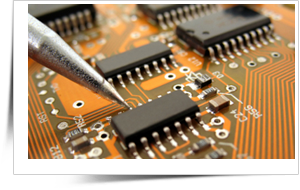|
|
|
|
Electronics Engineering
|
asp:Content ID="Content3" ContentPlaceHolderID="ContentPlaceHolder3" Runat="Server">
 Instrumentation Engineering deals with the design, configuration and automation of systems. Electronics & Instrumentation Engineering (E & I), Instrumentation & Controls Engineering (ICE), are the two Engineering courses which are derivative of the Instrumentation Engineering. These two courses covers almost similar subjects and the professionals graduated in these courses can look for a similar work profile. Instrumentation Engineering deals with the design, configuration and automation of systems. Electronics & Instrumentation Engineering (E & I), Instrumentation & Controls Engineering (ICE), are the two Engineering courses which are derivative of the Instrumentation Engineering. These two courses covers almost similar subjects and the professionals graduated in these courses can look for a similar work profile.
This course encompasses the design, build and management of systems that are used in a range of modern industrial settings, and is closely related to mechatronic and robotic engineering. Instrumentation engineers are employed at essential positions in the industrial manufacturing sector and usually work in industries with automated processes, such as chemical or manufacturing plants with the goal of improving system productivity, reliability and stability.
What is the future for an Instrumentation graduate?
- Instrumentation Engineers are responsible for the design, construction and maintenance of the entire instrumentation systems of any industrial undertaking.
- The type of instruments needed for ensuring better quality and efficiency of the end product are decided by an instrumentation engineer.
- Instrumentation Engineers design the actuators, positioning devices and robots for industrial automation.
- Instrumentation and control engineers monitor measure and control physical quantities like temperature, pressure and flow in an automated industrial environment.
What is the future for an E & I / IC graduate?
Instrumentation and control engineers are employed in a range of modern industrial settings such as manufacturing, environmental, health, food production, mining and energy production.
IC/E & I Engineers can find opportunities in any of the following categories
- Instrumentation Engineer / Process Engineer in heavy industries such as thermal power stations, steel plants, refineries, cement and fertilizer plants etc.
- Design and product development Engineer in companies that manufactures specialized instruments such as actuators, measuring gauges, etc [Electronic Design & Manufacturing]
- Industrial automation / Robotic Engineer in any manufacturing or food processing industry which run in an automated setup.
- Maintenance & Repair Engineer for Bio-Medical instruments
- Software Engineer [specializes on creating customized software for the specific instruments].
Scope for Higher Education
After graduated as B.E / B.Tech in E & I one can look for M.E / M.Tech / M.S in any of the following areas like
- Robotics
- Mechatronics
- Industrial Engineering
- Control Systems
- Metrology & Measurement Systems
- Instrumentation
- Bio-Medical
Who should opt for Instrumentation?
If one likes, Electronic Devices, Measurements, Robots, Mechanical & Machineries, Remote Controlled Toys & Electrical Home Appliances
Course Duration : Electronic Engineering is 3 Years full time course with a semester pattern including 6 Semester
Eligibility : Matriculation 10 +
Syllabus : Click here to Download Electronic Engineering Syllabus Online
|
|
